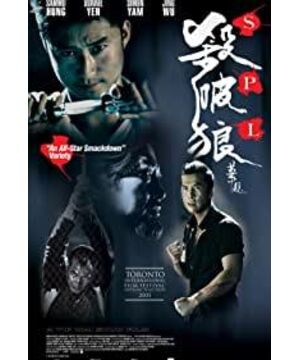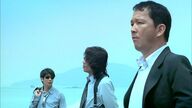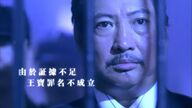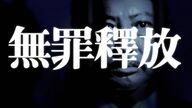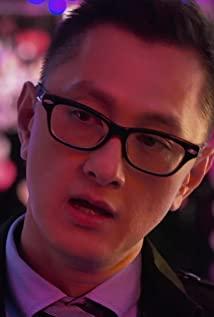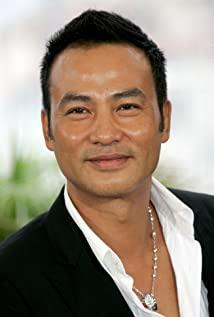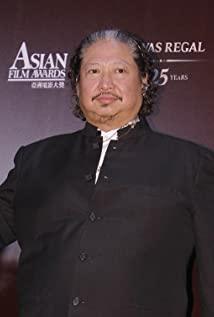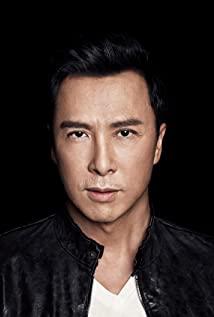It is fierce, tough, full of domineering, violent, never procrastinated, sharp edges and corners, several protagonists and main supporting roles are very "intrepid", whether it is watching Kung Fu or watching the plot, they are all "good-looking"-good-looking is not neutral. Emotional comments are also heartfelt. When it comes to emotionality, it is depression.
Let's talk about Wu Jing first, and speaking ruthlessly, he is very brilliant. In the whole film, he doesn't talk much, only a few lines of dialogue, mainly in action. Cold-blooded, swift, and fascinating with the short blade. This person, unlike a human, is like the short blade in his hand. The whole feels like a sword. In contrast, the assassin who killed the undercover was so bad, he used a gun, looked awkward, escaped in embarrassment, and died unclearly. I’ve watched Wu Jing’s TV before, but I forgot which one it was, and I didn’t have a clear impression of his role. I felt that his baby face was a major obstacle. The actors were most afraid of this stereotype, but in "Slaying the Wolf" Wu Jing can be said to have subverted all the previous images, with wheat-colored hair, cold, evil and cynical eyes, the murderous expression in his laugh, and the sharpness and cruelty when he started. It can be said that except for the name of Wu Jing, there seems to be nothing. Connected with the previous role, this is the killer Ajie, not even Wu Jing. If what I expected is not bad, this drama is a new starting point for Wu Jing. Wu Jing's name will be added to the martial arts big star list.
The name "Slaying Wolf" is very special. There are subtitles in the opening title: Slayer, which means the three stars of Seven Kills, Breaking Army, and Greedy Wolf. Its changes can both create and destroy your beautiful world. But even with such an interpretation, it is still difficult to understand the strong connection between the title and the plot, except for the fate of "Broken Army" mentioned in a dialogue between Ma Jun and Chen Guozhong. However, from the literal and pronunciation, these three characters are indeed also hard, with murderous and evil aura. What pervades the play is murderousness. The two factions of good and evil are not at the same time. Either you die or I die. There is no room for maneuver.
The death of the witness was a huge turning point for Chen Guozhong. Without witnesses, Wang Bao could not break the law. He walked out of the police station boldly, still at large, still arrogant, Chen Guozhong took risks and collided with a car. Here, it fully reflects the helplessness of a law enforcement officer. He knew that Wang Bao couldn't be helped by normal procedures, so he had to take a shortcut, but here was the subtle difference between black and white. In any film about the underworld, the gang will always be more ruthless than the square, not ruthless, and not enough to establish a firm foothold. At the scene where the witness was killed, Chen Guozhong just felt different. The car had already crashed into it, and it was inevitable to avoid it. The other party was reckless. As long as you die, it doesn't matter if you lose your life. The bad guys often have such courage, but the good guys are either ruthless or too ruthless to lack skills. Therefore, the result of the previous crash was two deaths and several injuries, and the result of the latter crash was to get out of the car for a showdown, and it was because of the traffic police. Arrived without a real decisive battle. In other words, Chen Guozhong has no mortal heart yet. In the later clips, more and more desperate postures appear.
When Chen Guozhong knew that he had brain cancer, he was very calm. Perhaps as a policeman, his life and death had already been put aside from life and death as a police officer. When he calmly told Ah Hua that he had a tumor, Ah Hua listened calmly and seemed indifferent. After Chen Guozhong left, he was still calm. He picked up coffee, drank, stopped, and rested heavily on the table. Compared with Shi Cai's calmness, this is an extreme expression and more impactful.
As soon as the camera turned, it was Ahua who told Chen Le about Chen Guozhong's illness. Brotherhood is revealed step by step in this way. Because the work of the police is always in danger, the sentiments that are cultivated in the same trenches are naturally different. This should be different from ordinary people, so it is more bloody.
Because of this bloody nature, the boundaries between right and wrong, justice and evil are confused. Different from the perspective of "Infernal Affairs", "Slaying the Wolf" focuses on the helplessness of the justice party in front of the law. The police, as law enforcement officers, cannot bring the heinous rape to justice because of the lack of evidence. The law should be It is good to punish evil, but the rules only apply to those who obey the rules, and sometimes become a yoke. Chen Guozhong saw the witness and his wife die in front of him. He knew that Wang Bao did it, but he suffered from no evidence, and Wang Bao facts. The above is to use the law to directly destroy the evidence, so it is above the law. In this play, the law has become a tool for Wang Bao to protect himself. This is not a strong irony in the beginning. A crowd of young and Dangerous boys went to the police station to make trouble and demanded to surrender. The police were rather nervous about this. The confrontation on the street, Wang Bao and the young and Dangerous boy throwing wine bottles, is also a very tense part of the bridge. Sammo Hung interprets Wang Bao's momentum very well. When meeting with the lawyer, he dignifiedly asked to use his cell phone to call. The young policeman scolded him, but was shocked by his sharp eyes. He could only let him hide his cell phone by his side, which in fact paved the way for the later tragedy. If it weren't for this mobile phone, Wang Bao would not have deployed troops in prison, found the informant, and obtained the video tape, and arranged for the killers to slaughter A Le, A Chen and A Hua. Wang Bao said: "If you do something wrong, you will taste the consequences." This sentence is also ironic. Even if Wang Bao died in the end, the price paid to kill Wang Bao is still too great. It is said that the ending of the Hong Kong version is that Wang Bao woke up, stabbed the horse army, broke the window and jumped off the building, but just happened to crush his wife and children waiting in the car downstairs. Although this ending was very cruel to Wang Bao's wife and children, it also echoed Wang Bao's words, and at the same time explained that Ma Jun's ending should be complete.
Ma Jun also has a process of transformation. When he witnessed Chen Guozhong and others killing the murderer of the undercover police, he was angry and accused: "You must be wrong!" But when Chen Guozhong mentioned that he punched the suspect into an idiot, he was speechless. Then he switched to playing the game with the idiot who was hurt by him, deliberately losing to him, let him live the addiction of heroes and winners in the game, his regret and guilt, just like Chen Guozhong raising Haier-and here, it is again An irony, what role does the government play here? If the people who are injured in the case are taken care of by the police involved, how much can they be taken care of?
How much, when, is a problem, money is also a problem. At the beginning, I saw Ale hiding the money in the rear trunk, and faced Chen Guozhong a little cringe. Later, he asked Ma Jun if he had thought about not being a policeman. I really wanted to doubt whether he had any ambitions, but to Brother Hua insisted on holding on and told Ma Jun the secret: "We have taken Wang Bao's money, and we have to raise our daughter for Brother Zhong." Then he suddenly understood why when he was at the beach, Brother Hua said, "Nothing. Tell Brother Zhong, what does it mean to help him look at the girl, and at this time, I only feel heartache. They took the wrong way to achieve the goal that could not be achieved in the right way. They used violence to control violence, planted, perjured, intimidated, etc., just to give a confession to the dead brother, and to make the bad guys punished, but the result was, He died before he left the teacher, and the very warm Father's Day night was a night of ecstasy. Achen had just been together with his daughter, but in the end, he died suddenly. He didn't even have a chance to open his daughter's gift. Seeing his hand stretched in vain in the pool of blood, there was a strong contrast between the powerlessness of justice and the arrogance of evil. When Ajie walked towards Achen, Ahua wanted to warn him, but he couldn't make a sound. The crisis was approaching, and Achen was still in a warm atmosphere. He didn't feel the catastrophe at all, and it was an extremely strong contrast.
This kind of plot arrangement is exciting and also draws the audience into the plot. The audience was outside the screen, just like Ah Hua, knowing it, but they couldn't make a sound. They could only scream at him, watched Achen fall to the ground, and watched Ah Hua take his last breath. And Ale, the youngest Ale, had the longest dying process. This plot is so maddening. Ma Jun stood outside the fence, watching Ale's blood spurt and his life disappearing little by little, watching him fall. , Exhaling a long breath, he was outside the fence, unable to do anything, like a trapped beast, this time witnessing was also a key step for him to fully follow the same path as Chen Guozhong. He came with A Le, but ended in A Le's death. It was Chen Guozhong who entrusted him to take care of A Hua and A Chen, and he was one step too late. This kind of heart-piercing pain is just like Chen Guozhong experienced the murder of undercover police officer A Wei. He could not achieve what he promised. On the contrary, what Wang Bao said was achieved. Who is more Tough? Who is more ruthless than whom? As the police, Chen Guozhong and Ma Jun finally chose to abandon their police status, remove all the tortuous processes, ignore any witness evidence, and directly confronted each other to stop the killing.
Naturally, the price is huge. The price this time is Ma Jun's future (or his life). Chen Guozhong was cruel. He had a foundation. He had a brain tumor. He died on the left and died on the right. Killing Wang Bao was considered a profit. The two battles between Ma Jun and Ajie, and Ma Jun and Wang Bao were very fierce, especially in the previous one. Because Ajie had the previous killing scenes, he would make the audience sweat for Ma Jun. Both of them are good fighters, so this short-term and close-to-hand combat scene is very exciting. When A Jie was stabbed in the back and the blood splashed in his white shirt, it was a relief. The Ma Jun assassinated A Jie. , In fact, quite a bit of Ajie’s style, "respect the way of the other, but also use the other body", but the moves are faster and more ruthless than Ajie, winning in speed and strength, and still use Ajie’s own knife, this time A very bloody scene, because there is a foreshadowing of Ajie's murder in the front, so the audience will not be too disgusted, and even feel "hatred". ——At this time, the gun abdicated and the cold weapon came on the field. In the whole scene, the gun basically did not play a big role. In the scene where Ah Wei was killed, Wang Bao first beat him with a golf club, and then the killer shot Ah Wei in the center of his eyebrows. . Ma Jun surrendered his gun and police badge, and replaced it with a knife. The original weapon seems to mean the old martial arts era of happily enmity. Logically, it may not be consistent with the new society where guns are the mainstream. However, in terms of the theme of performance, the knife But it plays a better role. ——Of course, knives are also double-edged, and while hurting the enemy, they will also hurt themselves. This is true for Ajie, and the same is true for Ma Jun and Chen Guozhong. So this ending is doomed to lose both sides, so it is even more tragic.
Several fierce battles, each with its own distinctive characteristics, as the action director Donnie Yen, the design is in place-it is strange that "Seven Swords" only allows Donnie Yen to perform without martial arts design, otherwise the martial arts of Seven Swords might be more exciting ——As more and more special effects are used, and computer technology is becoming more and more advanced, martial arts are actually becoming more and more difficult to look good. Flying around is beautiful, but it can only be repeated. The world is cold, first One is innovation. The second one will be ruthlessly discarded. Tsui Hark has created a new style of martial arts shooting, but when it comes to "The New Shushan Chivalrous Man", it feels like a madness. Zhang Yimou created " The "Hero" style of play has received rave reviews. When it comes to "Ambush on Ten Sides", there is only one bad comment. The feeling is not only martial arts, in fact, it is comprehensive. If it is not such a plot, the play is very abrupt, and if it is not played like this, the plot does not have tension and tends to become vulgar.
Because of too many fights and killings, the overall tone of the film is violent, and most of the time, it is also shrouded in darkness, but occasionally a few daytime shots play a neutralizing role, and the picture is fresh, like a few scenes on the beach. Such as the conversation between Wang Bao and his wife, and the conversation with Haier in the hospital, and often these fragments are transitions, and then there will be a sudden turn, just like a beautiful suburban scene just now. , Is the scene where Awei was killed. In many parts of the screen editing, two or more screens are used in parallel. It is a novel way to show different characters from multiple angles on one screen, so that the screen has a deep and three-dimensional effect.
Several details of the film are also quite intriguing, echoing before and after, instead of leaving too many puzzles like many films. At the end of the first time, I didn’t understand where the three pairs of shoes came from and what they represented. I felt very abrupt. When I read it again, I noticed that Chen Guozhong was at the beach with his daughter and three subordinates, Ahua and Achen. A Le took off his shoes and stood in the water to play with Haier, while Chen Guozhong and Ma Jun were talking. The last shot is flashing back to this memory, the empty beach, but the warm picture is no longer in the memory-the people who have the memory are dead, Haier is still young, and may not remember it. Haier and the suspect who was beaten as an idiot by Ma Jun have lost their memories, but they are happy instead. Haier can even walk up to Wang Bao and ask him to eat sweets. People who have memories on their backs, such as Chen Guozhong, can't let go. Ma Jun went to the police station for the first time. At the door, he passed by the car of Chen Guozhong and others. There was a brief glance at each other. Then, Ma Jun walked into the office, while Chen Guozhong and others discussed in the car. people. At this time, the camera on both sides switched between this and the other, virtual and real. On the one hand, Ma Jun walked past everyone's desk in the office, guessing the owner based on the scattered objects on the table, and on the other was a nervous fight. The camera scans the group photo of Achen and her daughter several times. The same is true when receiving a call from her daughter on Father’s Day. Father’s Day is a clever time period setting that brings together everyone’s affection. Achen and Chen Guozhong, one has a daughter and the other has an adopted daughter, so the happiness is obvious. Ale also thinks of his relatives in Brazil. Compared with Ma Jun, Ahua and Ma Jun seem to be relatively indifferent. When Ahua asked Ma Jun’s father, Ma Jun only said faintly that he was dead, while Ah Hua said angrily that he too was dead as his father, but in the public telephone booth, he could not help but hang up a call to his mother. When he knew that his father had actually passed away, he was surprised. Lost. And Ma Jun actually kept his father deep in his heart, and his violence may not have been unaffected by his father's death. But at the same time, he was also affected by other influences. During the duel with Wang Bao, the voice of Wang Bao’s wife on the phone made him loose his arm and enabled Wang Bao to happen. At that moment, he might think of the idiot suspect. , I may think of Chen Guozhong's adopted daughter, but this is not the reason to let Wang Bao go, so the next thing is to fight for life.
In the plot, because of his wife and children, Wang Bao’s image is also three-dimensional, but Wang Bao’s wife’s image is too pale. As a wife, she cannot be ignorant of what Wang Bao has done. To behave so softly and unreasonably, in other words, this is not a qualified "gangster" (Mary played by Carina Lau in "Infernal Affairs" is more like a little). Or it can be said that there is still something to be excavated. In "A World Without Thieves", the thief's wife is good for having children. People who are in the underworld are often afraid of retribution, so Wang Bao who has children, except In addition to feelings about his wife and children, whether the murderous aura can be tempered in a timely manner, there is actually a lot to do. This increases the twists and turns, the plot will be more complicated, and the depth will increase. Because even if Wang Bao Xiangshan, Chen Guozhong and the others would not let him go. "You will have to pay it back sooner or later." The old account still has to be counted. But in this way, the three lines of black, white, and the middle route will be repaid. Some twists and turns. ——This is an idea.
Another loophole in the plot is the interval of three years. This time is too long. Whether Chen Guozhong’s illness can last for so long is not justified. The little girl did not perform substitutions for three years. This is contrary to common sense. I don’t know what the screenwriter means here. Years should be enough.
If the Hong Kong version's ending is true, Wang Bao, his wife and children, and Ma Jun are all killed, and at the end, Chen Guozhong falls down due to an attack, then it can be said that this is a very ruthless film, the good and the bad are all dead, and there is a little hope. Nothing left, clean and tidy.
——No matter what kind of ending, the melancholy left outside of the play will last for a long, long time.
View more about Kill Zone reviews


